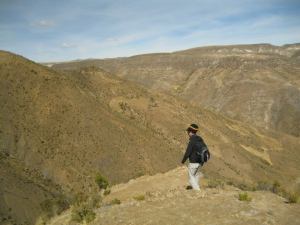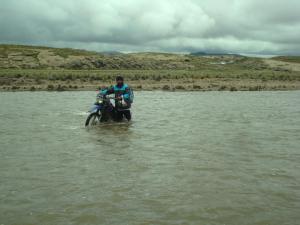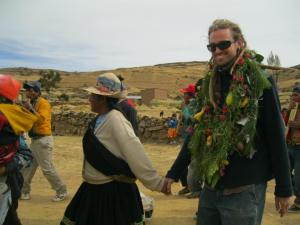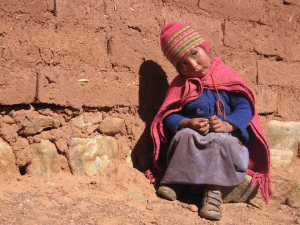The Reason Your Sponsor Letters Can Take a While to Arrive…
 Ever wondered why the letters from your sponsored children can take a while to arrive? Well I’ve just spent the last two weeks in Bolivia and have seen firsthand the terrifying roads, high mountains and wide rivers sponsor’s letters have to traverse before they arrive. So next time you hold one of those letters, please take a moment to appreciate the journey it took!
Ever wondered why the letters from your sponsored children can take a while to arrive? Well I’ve just spent the last two weeks in Bolivia and have seen firsthand the terrifying roads, high mountains and wide rivers sponsor’s letters have to traverse before they arrive. So next time you hold one of those letters, please take a moment to appreciate the journey it took!
I’m a well travelled person, but I have never before been in such remote and extreme communities as those I visited in Bolivia. I travelled to villages hidden deep in valleys, far from the closest roads. There was a fair amount of huffing and puffing involved in reaching these tiny communities at high altitude, but once I started working with the children the trek felt well worthwhile.
 Each visit to one of these communities involved a journey of pretty epic proportions, normally using several different forms of transport. It certainly gave me an appreciation for how hard the sponsorship staff work – and their dedication to reaching hard to reach children.
Each visit to one of these communities involved a journey of pretty epic proportions, normally using several different forms of transport. It certainly gave me an appreciation for how hard the sponsorship staff work – and their dedication to reaching hard to reach children.
On one trip, where the roads were particularly treacherous due to recent landslides, I had to get out of the car on three separate occasions to move rocks into crevices in the road so that we could pass. After all of this work we came to a dead end, the road had simply fallen away into a gaping hole like one of those cartoon images. We had to retrace our steps and find an alternative route.
But the car journey wasn’t the end of it. In most cases we then had to trek for another hour or so to reach our tiny village destination. At 4,000 feet, this too was no mean feat. I’m normally a pretty fit guy, but I was pushing my body to the limit with the lack of oxygen in the air at that altitude – though the locals found it a breeze.
 After our trek down the mountainside we were greeted with a welcome drink of warm milk and rice and given impressive garlands made from flowers and vegetables. The locals were always dressed so vibrantly. I was amazed at their generosity, that people with nothing gave so much. The kids were somewhat coy to begin with, but soon warmed up to me and were climbing over me pulling and touching my dreads… They had never seen them before and were quite taken aback.
After our trek down the mountainside we were greeted with a welcome drink of warm milk and rice and given impressive garlands made from flowers and vegetables. The locals were always dressed so vibrantly. I was amazed at their generosity, that people with nothing gave so much. The kids were somewhat coy to begin with, but soon warmed up to me and were climbing over me pulling and touching my dreads… They had never seen them before and were quite taken aback.
While I was in these villages I conducted story writing workshops with the kids. I want to tell you more about them tomorrow and share some of the children’s stories, but while we are on the topic of hard to reach children I thought this story from Marcos was perfect:
“When I go very up in my community I look at the school bus I think it should be very difficult to drive because places here are very dangerous and when I imagine it scares me a lot.
I prefer walking or taking my things on donkey. I have a donkey in my house he help us a lot to carry heavy things especially when we harvest potato, wheat, beans, barley, sweet potato, yellow potatoes, corn. Also two cows, they help with the plough of the land because with the pick it’s not enough.” Marcos, 11 yrs old
 I’d love to answer any questions you have about Bolivia and what life is like for children in some of these remote places. Please post your questions below and I’ll get back to you. Keep following the blog and tomorrow I’ll share a few more reflections and some of the children’s stories that came out of my story writing workshops.
I’d love to answer any questions you have about Bolivia and what life is like for children in some of these remote places. Please post your questions below and I’ll get back to you. Keep following the blog and tomorrow I’ll share a few more reflections and some of the children’s stories that came out of my story writing workshops.
Steve Richards is a Children’s Communications Specialist with World Vision UK. His work seeks to give the children we work with the skills and confidence to write and speak for themselves in their own words. He has just returned from conducting story writing workshops in Bolivia.